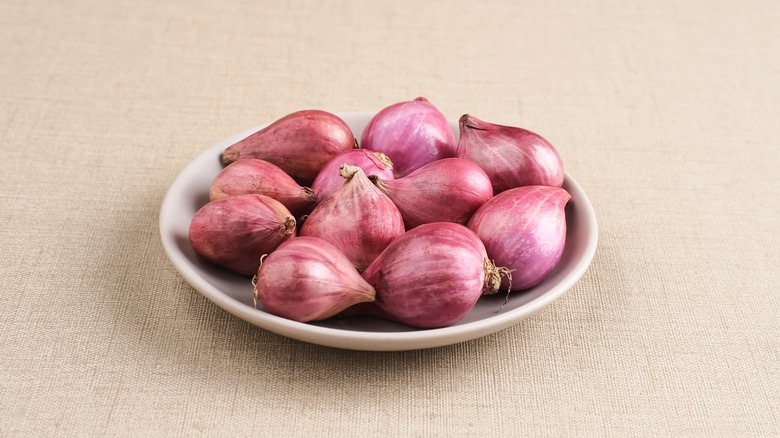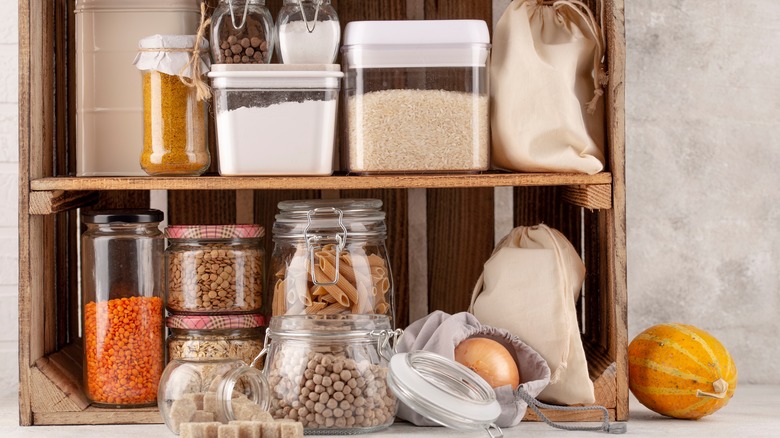Why You Should Stop Refrigerating Shallots
Are you a firm believer that keeping produce in the fridge is always the best way to ensure quality? If so, you might want to rethink how you store certain foods. Although the USDA notes that refrigeration can delay the growth of bacteria along with slowing the deterioration of foods, this isn't necessarily true of all ingredients — shallots included.
Known by the scientific name of Allium ascalonicum, MasterClass explains that shallots are closely related to onions, chives, and garlic. Small and oblong with a violet hue, shallots have a sweeter flavor that's less pungent than onions but with a gentle zestiness reminiscent of garlic. Able to be used interchangeably with onions, the tiny bulbs can be fried for a crunchy garnish, minced into vinaigrettes, left whole to roast or confit, or even pickled for a kick of acidity.
Bon Appétit recommends choosing firm bulbs that don't have soft spots, blemished skins, or green sprouts when shopping for shallots. The real challenge, however, is how to store them once you've brought them home from the market. Despite the reflex to immediately pop produce in the fridge, you should probably refrain when it comes to shallots.
Refrigeration makes shallots deteriorate faster
Much like onions and garlic, shallots don't fare well in the fridge. Aside from imparting their intense perfume onto other foods, they can actually start to deteriorate more quickly. Given that the refrigerator is a high-humidity space, Allrecipes reports that shallots can absorb moisture, causing them to prematurely soften, sprout, and mold.
To ensure the longest shelf life, Food52 advises that whole, unpeeled shallots instead be kept in a dry, cool area with air circulation like the pantry or even the cellar. When stored at temperatures between 45° F to 55° F (cool yet warmer than the fridge), StillTasty notes that the sweet and zesty bulbs can last up to two months before showing signs of spoilage like softness, discoloration, or off aromas.
Since there's nothing more disappointing than bringing home a fresh haul of produce only to realize things are starting to spoil just days later, you're definitely going to want to think twice before storing your shallots where you shouldn't!

